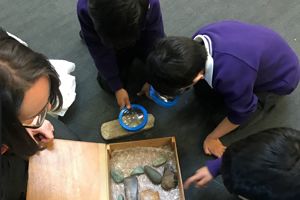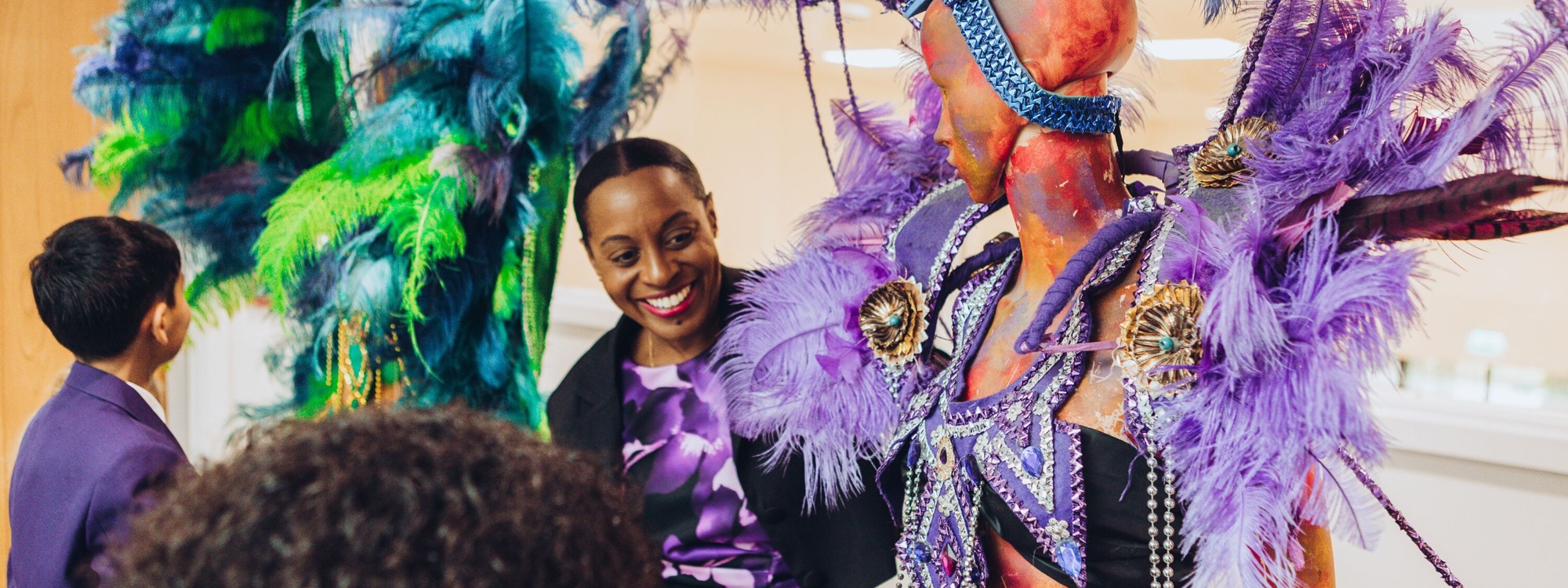- Home
- Museum Learning
- Museum Learning at TLAP
Museum Learning at TLAP
 What’s inside a rock?
What’s inside a rock?
You could answer that by searching on the internet or checking in a book. At The Langley Academy Primary, when a group of pupils asked this question we asked them to break the rock open and look for themselves.
Our children learn by experiencing things for real. We use Museum Learning to create vivid life experiences, often led by the children’s own interests.
When our children asked us about the inside of a rock, we challenged them to create a proper experiment. They wrote a safety plan and decided which equipment to use. They smashed rocks open and recorded what they saw. The Museum Learning Team took this further by showing them different examples of rocks, fossils and hand axes.
Museum Learning gives our pupils a deep and abiding knowledge of the world and ignites a love of learning. We bring the world to our children with exhibitions and installations in school. Recent examples include costumes from the Notting Hill Carnival, percussion instruments from around the world, and how to be a scientist. Museum Learning runs throughout our curriculum. Here are a few examples:
- When our Year 1s research the Victorian engineer Isambard Kingdom Brunel we take them to his Sounding Arch in Maidenhead. The bridge is so large and impressive it gives an excellent understanding of engineering. They experiment with the echoes to learn where its name comes from.
- For the story of the Three Billy Goats Gruff, we introduce pupils to real goats from Berkshire Agricultural Education. The taste of goats milk and cheese creates a lasting impression!
- Why do we have feelings? Using museum objects to represent different emotions, the children learn about how the brain works. They learn about brain structure and talk about how behaviour links to feelings.
- How do we know what happened in the past? For our Archaeology Day, our Year 2 children work with an archaeologist to survey the school grounds. They make real dig pits and analyse their finds. They even learn why poo is important to telling us about past lives.
You can see our vision for Museum Learning and read more about it HERE.
